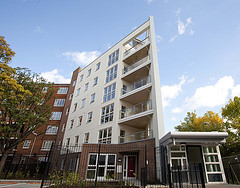The state government of Orissa plans to develop 5,000 affordable homes in Bhubaneswar. The affordable homes will be developed in collaboration with the private developers.
BHUBANESWAR: As Bhubaneswar, the capital of Orissa, is growing very fast, the properties in the city have gone beyond the reach of the middle and lower income classes. They do not find any affordable homes in the city now. Seeing this situation, the state government has decided to develop 5000 affordable homes in the Capital City.
Injeti Srinivas, the state secretary for housing and urban development, said that the government will develop 5000 affordable homes in the city. He added that the plan will be worked with the help of private developers.
Affordable housing projects will be developed at Gothapatna. The government has reserved around 100 acre of land for affordable housing projects. Out of this, around 15 to 20 acres will be provided to the developers. Continue reading
